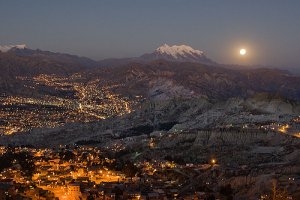
Not only will the upcoming DataBootCamp of Bolivia be the first event of its kind in Latin America, it will be the highest-altitude data journalism event the world has seen so far.
Journalists, programmers and designers will gather in the capital, La Paz, whose altitude reaches more than 11,800 feet (3,600 meters) above sea level. But the event itself will represent just the first step of a steep yet unstoppable climb toward using open data in the region.
When governments release data in any form, the data need to be interpreted by people trained to verify and make sense of the information. At this event, we will bring together top-notch data journalism trainers from around the world to teach basic data journalism workflows to local journalists from Bolivia's mainstream media. The participants will then go back to their newsrooms and share what they learned.
The event in La Paz, which I’m organizing as part of my ICFJ Knight International Journalism Fellowship with the support of the World Bank Institute (WBI), will be more than just a productive space to gather journalists and programmers. It will accelerate the culture of media innovation by establishing open data processes throughout the region and by creating a Latin American network to rethink the production processes of journalism. We want to build a process of engagement and participation throughout the region. The boot camp will also serve as the first major test of OpenDataLatinoamerica, a site that is bringing together data sets from across the region.
Read the rest of Blejman’s post on IJNet.
The International Journalists' Network, IJNet, keeps professional and citizen journalists up to date on the latest media innovations, online journalism resources, training opportunities and expert advice. ICFJ produces IJNet in seven languages: Arabic, Chinese, English, Persian, Portuguese, Russian and Spanish. IJNet is supported by donors including the John S. and James L. Knight Foundation.